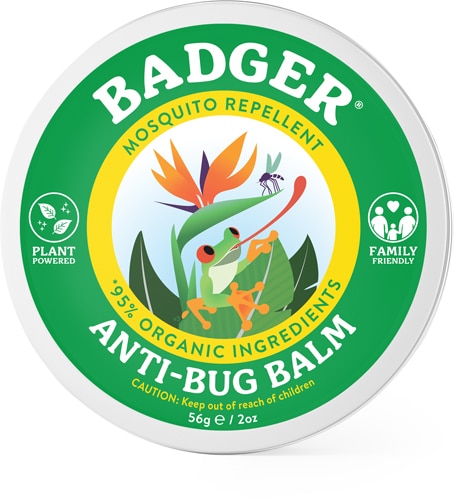Summer’s here, and the return of the warm weather comes with a host of annoying little pests—namely, the mosquito scourge. But before you reach for that bottle of DEET, consider insect repellent alternatives, which can in some situations be just as powerful as the more toxic chemicals.
Avoiding DEET (or diethyl-meta-toluamide), a common ingredient in most conventional bug sprays, is worth your while: The Medical Sciences Bulletin, published by Pharmaceutical Information Associates Ltd. reports, “Up to 56 percent of DEET applied topically penetrates intact human skin and 17 percent is absorbed into the bloodstream.”
However, one of the biggest downsides to keeping it natural can be summed up in two words: reapply often. Repellants using essential plant oils are believed to be most effective in the first hour of application, although some may last for up to 6 hours.
On the other hand, if you live in an area (or are travelling in one) where getting dive-bombed by mosquitoes is the norm, you may not want to take any chances. Conventional mosquito repellents containing higher concentrations (23.8%) of DEET offer the best protection. For areas where serious mosquito born diseases such as the Zika virus and malaria are pervasive, the CDC recommends using repellent, treated clothing and bed-netting to prevent mosquito bites. If you are committed to fighting bites without chemicals—here are four of the best plant-based, natural bugs repellents.
Oil of lemon eucalyptus (OLE)
OLE is the trade name for a repellent derived from the eucalyptus tree native to Australia. A natural, plant-based oil, OLE is perhaps the most effective alternative to DEET, offering protection for up to two hours and comparable to products that contain lower concentrations (6.65%) of DEET. If you decide to try OLE, make sure you buy the insect repellent version and not lemon eucalyptus (essential oil). OLE should not be used in children under age 3.
Oil of citronella
Essential oils and extracts belonging to plants in the citronella genus (Poaceae) are commonly used as ingredients of plant-based insect repellents. Mosquito repellents containing 10 percent citronella (higher concentration can irritate the skin) offer some protection, and citronella scented candles and torches may help too. But don’t get have too high an expectation: Researchers say the protection may only last for 20 minutes at most.
Catnip oil
This insect repellent is derived from the nepeta cataria plant and according to the EPA, has the potential to provide mosquito protection for seven hours. Research conducted at Iowa State University found that the essential oil found in the herb catnip is about 10 times more effective than DEET in repelling mosquitoes. (For an added bonus, catnip also repels cockroaches.)
2-undecanone
Derived from the wild tomatoes, this extract can offer roughly four hours of protection from mosquitoes. The EPA found this ingredient effective enough against pests to register it as a viable repellent. In one study, 2-undecanone, the active ingredient in BioUD repellent, was more effective against certain kinds of ticks than a solution of 98 percent DEET.




